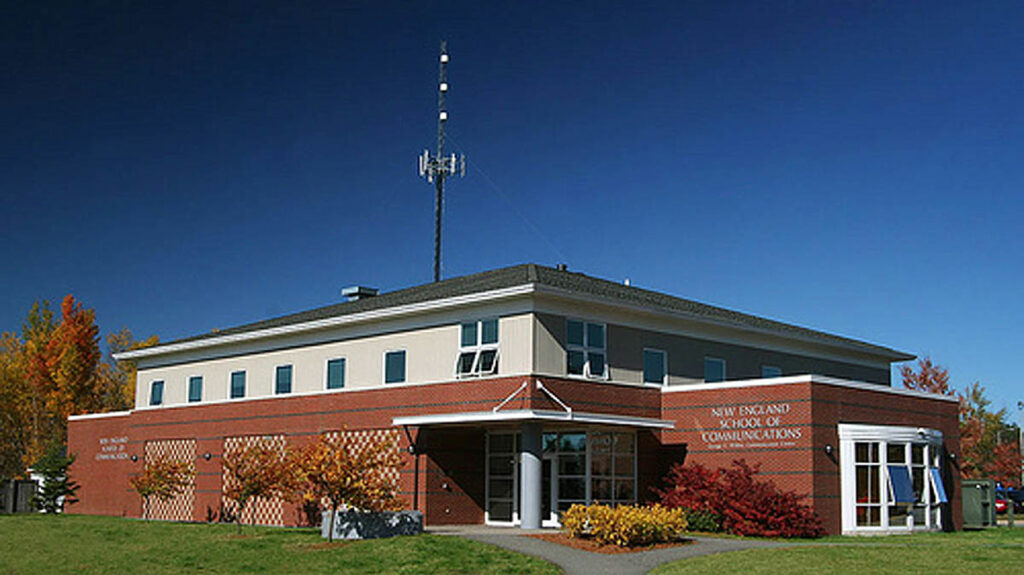Bangor, Maine – March 2010:
Graduates from the New England School of Communications (NESCOM) are highly sought-after in the pro audio trades for their balanced appreciation of theory, application, and technique. One of the ways NESCOM keeps current is by replacing one of the consoles in its seven fully-appointed control rooms every year, as well as by providing regular upgrades to its remote truck and its 500-seat theater complex. Last year's pick was a 32-channel API 1608 with a 16-channel expander. The overwhelming enthusiasm for the 1608 contributed to this year's decision. NESCOM will replace a control surface in one of its surround rooms – Studio D – with a 48-channel API Vision surround production console, providing a superb front-end and mixing environment that ably handles stereo and surround simultaneously with an intuitive and instructive topology.
"There are a variety of schools of thought about whether it is better to mix 'in the box' or 'out of the box'," said Dave MacLaughlin, executive director of audio for NESCOM. "There are even regional variations. Nashville engineers, for example, tend to treat their DAWs like tape recorders, relying on external gear and summing to complete their mixes. Of course, we think students need experience with both approaches, but we already have control surfaces in a few of our other rooms. For Studio D, we wanted to give students more experience recording on a high-end console and then mixing back through that same console."
NESCOM's experience with last year's API 1608 and expander has been eye-opening. Of the seven studios available to them, students are choosing to work on the 1608 whenever they have the chance. "We love the sound of the 1608," said MacLaughlin, "and the Vision is that in spades." MacLaughlin also cited API's robust design, generous warranty, and USA-build as factors in the decision. "Above all, the people at API have been great to work with. They have a helpful answer to every question and request. In fact, some folks from API traveled out here to help evaluate the room and craft the ideal plan for getting the most out of the Vision in terms of placement and interconnects."
For the most part, advanced students, who are primarily juniors and seniors, will use the room. While music projects will provide the bulk of their work, the studio will also accommodate some post-production video work as well. It is already set up to monitor in 5.1 and stereo.
"We're very pleased to see a second API console going to NESCOM," said Larry Droppa, API president. "Perhaps I'm biased, but I don't think there is a more effective way to teach multichannel mixing than on the API Vision. The topology, combined with the authentic American sound of API circuitry, gives mixes true depth. I'm confident that NESCOM students will have a greater appreciation for the critical nuances of multichannel mixing as a result of their work on the API Vision."
